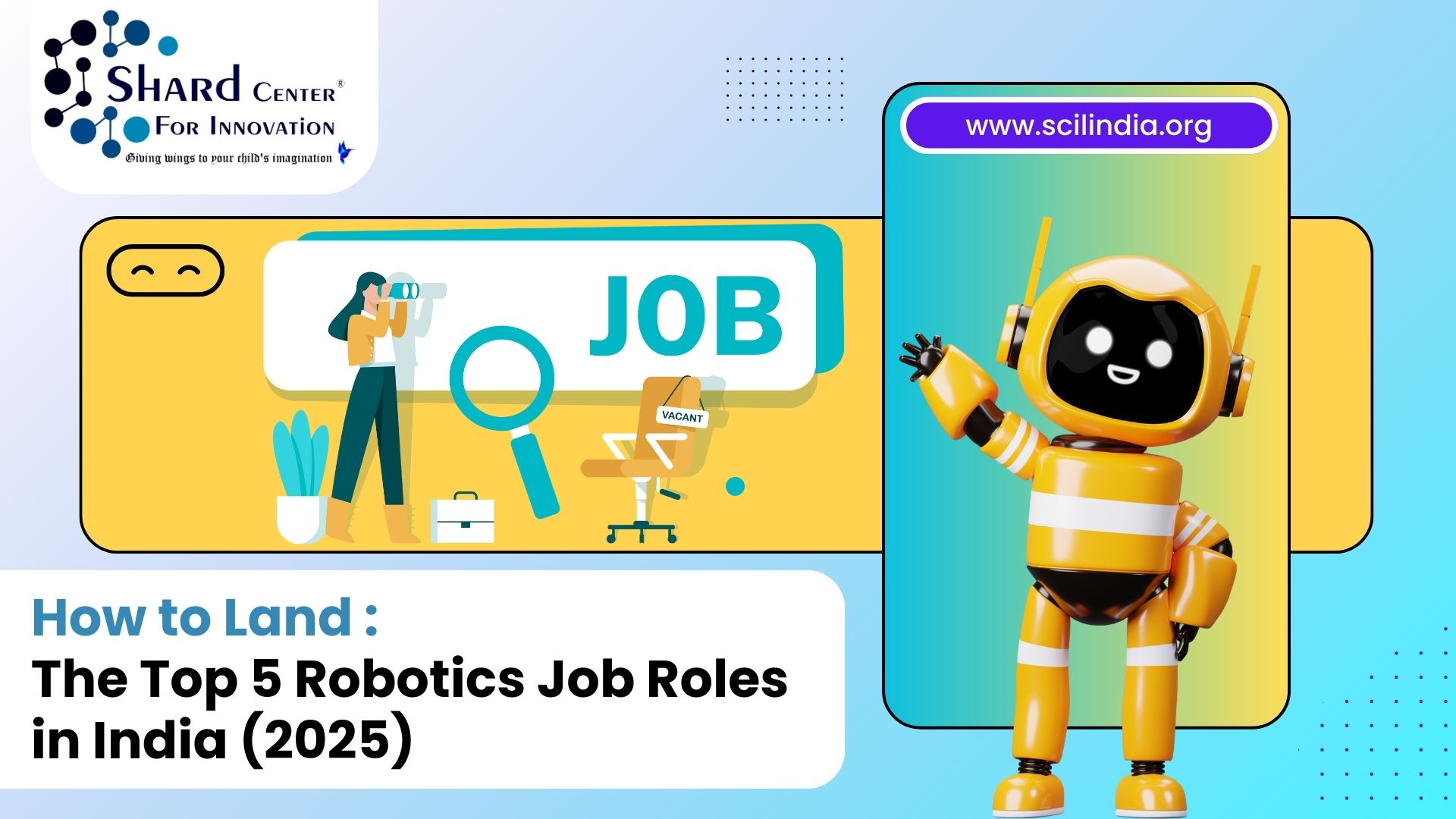The future is powered by Robotics, are you ready for it?
Whether it is an automated factory or a personal care robot to manage healthcare, robotics is no longer science fiction but a reality that inhabits our world.
India is quickly embracing this trend, with robotics playing a key role in industries like manufacturing, logistics, healthcare, and even agriculture.
However, this is where the twist is: as opportunities continue to increase, there is also an increase in the competition.
A combination of skills, education, and practical exposure is required to land your high-paying, future-proof robotics job.
Within this blog, we will find out the best 5 robotics job positions in India by 2025 and provide you with the actionable advice to be able to acquire them.
Robotics Engineer Building the brains and bodies of Robots
Enrolling in robotics engineering will help you create, construct, and certify robots in areas like automotive production, defence, etc. They engage in mechanical systems, electronics, and programming in order to come up with machines that can effectively and safely carry out their work.
Skills you need:
Strong foundation in STEM subjects (especially mechanical engineering, electronics, and programming).
Knowledge of CAD software, Python, and control systems.
Problem-solving mindset and creativity.
How to land this role: Get a degree in robotics, mechanical engineering, or mechatronics. In the meantime, construct elementary robotics projects to demonstrate your talents.
Be actively involved in competitions such as Robocon India or participate in robotics clubs in order to experience the work.
Internship opportunities can also be opened by networking with professionals using LinkedIn or in robotics forums.
Automation Specialist – Making Systems Work Smarter
The demand for automation specialists has also increased because industries turn to robotics to automate their processes. These practitioners combine hardware and software to produce systems that are automated and productivity-related.
Skills you need:
Knowledge in PLC programming, integration of robots, and industrial automation tools.
Familiarity with sensors, actuators, and networking protocols.
Analytical thinking and troubleshooting skills.
How to land this role: Focus on certifications in automation systems and industrial robotics. Employers often seek candidates with experience doing actual automation work, so an internship at a manufacturing or technology company is worthwhile.
Learning to work with collaborative robots (cobots) will give you an edge, as they are becoming common in industries.
Robotics, AI & Machine Learning Engineer- Giving Robot the Brains
AI and robotics go hand-in-hand. AI/ML engineers develop the algorithms so that robots can learn, adapt, and make decisions both in a delivery bot and an autonomous car.
Skills you need:
Knowledge of Python, C++, and AI libraries such as TensorFlow or PyTorch.
Good skills in the areas of computer vision, natural language processing, and data science.
Skills in working with big data and real-time decision-making systems.
How to land this role: Begin with a computer science or AI-focused degree, then specialise in robotics applications. Research on AI applications such as image processing for robots or self-driving. Contribute to open-source AI-robotics projects to build your portfolio.
Given the fact that AI and robotics are rapidly developing directions, update yourself by taking courses and workshops online.
Robotics Technician – Turning Ideas into Reality
While engineers design, technicians bring those designs to life. Their role is to gather, test, and service robots so that they are up and running.
Skills you need:
Practical knowledge of robotics hardware, electronics, and safety protocols.
Ability to read and follow engineering blueprints.
Hands-on problem-solving skills.
How to land this role: Get a diploma/certificate in robotics or electronics. Try to get a direct experience through working in laboratories or acting as an apprentice.
The practical skills of technicians are usually the criteria for getting employed, thus, ensure you have a row of working prototypes and repair works.
Research Scientist in Robotics—Innovating for the Future
Research scientists push the boundaries of what robots can do. They work in advanced fields like swarm robotics, human-robot interaction, and autonomous exploration.
Skills you need:
Strong academic background in robotics, AI, and engineering.
Knowledge of advanced mathematics, control theory, and machine learning.
Creative thinking and problem-solving abilities.
How to land this role:To step into this role, consider advancing your education with a Master’s or PhD in robotics or artificial intelligence. Write articles on your study and publish them in fine journals, and present your work.
Another strategy that will enable you to make a breakthrough in this position is working with research organizations in academic institutions, as well as industry research departments.
Conclusion
One of the most promising and fastest-growing career domains in India at the current moment is robotics. Give a shot to your curiosity, and you will land a high-paying career.
If you’re ready to take the first step towards a successful robotics career, SCIL can guide you. With expert-led training, hands-on projects, and career-focused programs, SCIL prepares students to meet industry demands and land their dream roles.
Start your journey with SCIL today; the future of robotics is waiting for you.
Related Blogs:
- From Ideas to Impact: How Design Thinking Sparks Student Problem-Solving
- How STEM Education Prepares Students for AI and Robotics Careers
- Integrating STEM in School Curriculum: Benefits and Challenges
- How to Set up a STEM Lab at your School in 2025?
- How Kids Can Learn Machine Learning in India—Starter Programs Explained
- 3-D Printing and Design Thinking for Beginners | SCIL India
